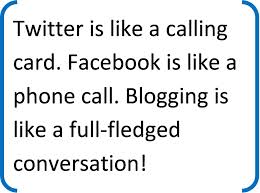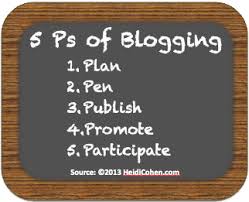Sponsored Links
Educational Blogging: An Introduction
 Blogging (“Web logging”)
Blogging (“Web logging”) Academic Blogging Philosophy
If commercial companies can use blogging to promote their products, why can't we, educators, use it as well to promote our lectures and thoughts, especially if they are beneficial and helpful. Examples:
Tips in Getting High Grades in Difficult Subjects
15 Tips to Become a Successful Entrepreneur
How To Deal with Terror Teachers
5 Tips on How to Make Your Romantic Relationship Last
7 Tips to Learn to Love Mathematics
Tips on How To Earn the Respect of Other People
Lessons in Life: The 10 L’s of a Balanced Life
*Vacation 101: 5 tips to enjoy it significantly
 Types of Academic blogs
Types of Academic blogs

3. From the learners’ point of view, this provides the ability to "pause and rewind" and the advantage of moving at their own pace*. If they need to read the lecture a second time, or think about a question for a while, they may do so without fearing that they will hold back the rest of the class.
5. It is compatible with online education or distance education program*. (Through this program, more people can earn their diplomas or repeat failed courses without the embarrassment of being in a class with younger students.*)
1. Blogspot/Blogger.com (owned by Google)
2. WordPress
3. Tumbler
 Educational Blogs' Advantage
Educational Blogs' Advantage
Information can be presented to students in a new, fun, and engaging way. It presents good alternative to printed learning materials. As observations reveal, rich media--including videos, animations, and gamification--can enhance learning.
OurHappySchool.com, for instance, allows the creation of an e-learning package--a blog consisting of:
1. texts
2. pertinent images (photos or tables)
3. educational video
4. links (leading to other educational materials)
5. comment section (for discussions: students to students/ teachers to students).
6. automated fun quizgame
- available online and ok for 'simultaneous mass consumption'*
- automatically checks and scores the quiz*
- gives the correct answer when the student errs (immediate feedback)
- with rich media: image, sounds, and video
- automatically sends the result to the teacher and quiz-taker's email (same with checked 'test paper' [printable])
Examples of Educational Blogs (e-learning package)
“No single e-learning method is best for every learning need. You will most likely need to use several e-learning technologies as well as traditional learning methods. A blended learning program combines e-learning and traditional learning methods. Blended learning can provide the convenience, speed and cost effectiveness of e-learning with the personal touch of traditional learning.”







Add new comment